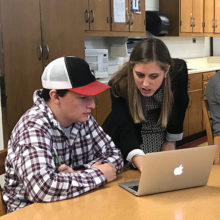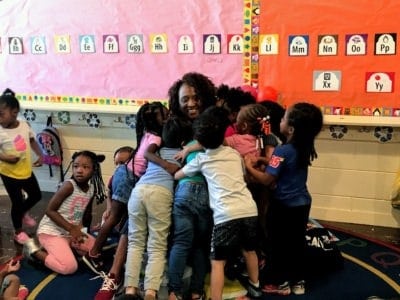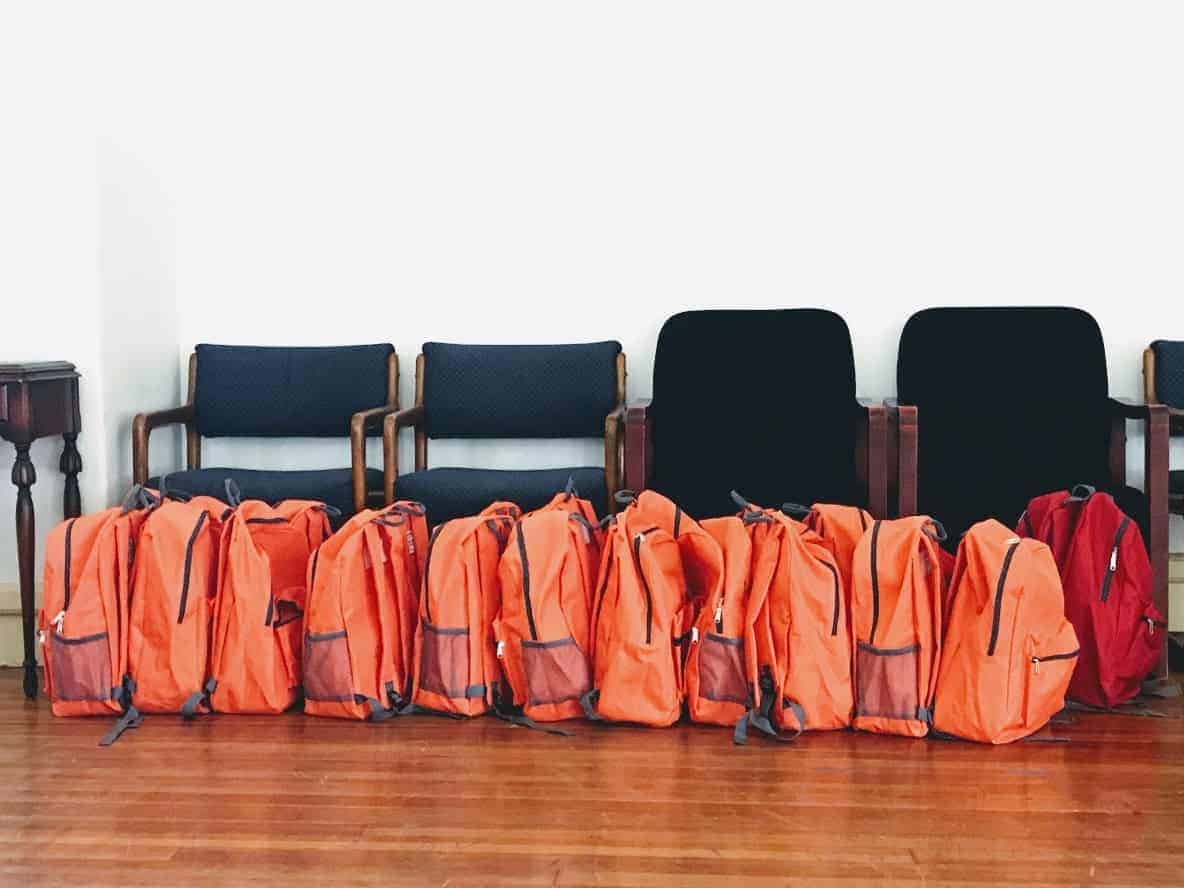

“What if parents were treated as the most important brain builder and most important teacher in a child’s life?”
A few years ago, Dinah Shepherd and Shantae Toole asked themselves that question.
“[My child’s] first-grade teacher was the person who said you have the power. This is your child. Tell me how to teach her,” said Toole, a Boston Public Schools special education teacher.
Toole partnered with Shepherd, also a teacher and parent at the time, to found First Teacher, a nonprofit with the goal of preparing children to be school and world ready by tapping into the power of parents — every child’s first teacher.
“We said, ‘What if families knew the power that they already hold?’ We’re saying the power is already there — we aren’t empowering anybody,” Toole stated. “We are going to help you, parent-to-parent, to recognize that power and use it.”
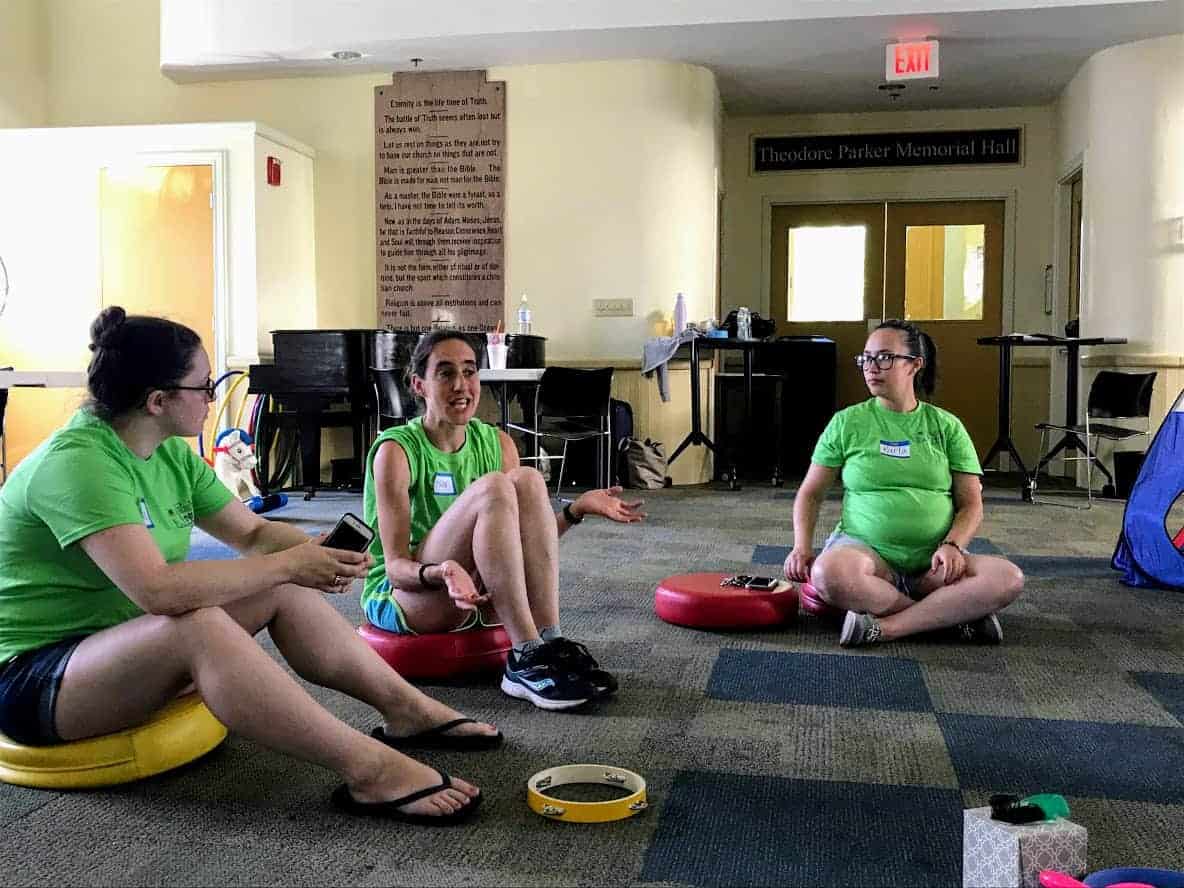

Toole and Shepherd founded First Teacher in 2014 with the mission of: “Powerful parents cultivate lifelong learners in every neighborhood.” They partner with families with at least one child under the age of six. The majority of their families are people of color who live in Roxbury, a neighborhood in Boston, Massachusetts where Shepherd and Toole live.
Through a variety of free workshops, play dates, and summer play weeks facilitated by parent leaders in the community, First Teacher creates a safe space where parents and caregivers can share, collaborate, and learn about strategies that build literacy, language, executive function, and social-emotional skills.
As Toole describes it, First Teacher is “a movement started by parents, completely facilitated by parents. [It’s] a parent-led kindergarten readiness program.”
While First Teacher is parent-led, participation is not limited to parents. “This is not just moms. We’ve got dads and grandparents,” Toole said. “First Teacher is a family affair. Everybody who’s lived life longer than a few years is a First Teacher.”
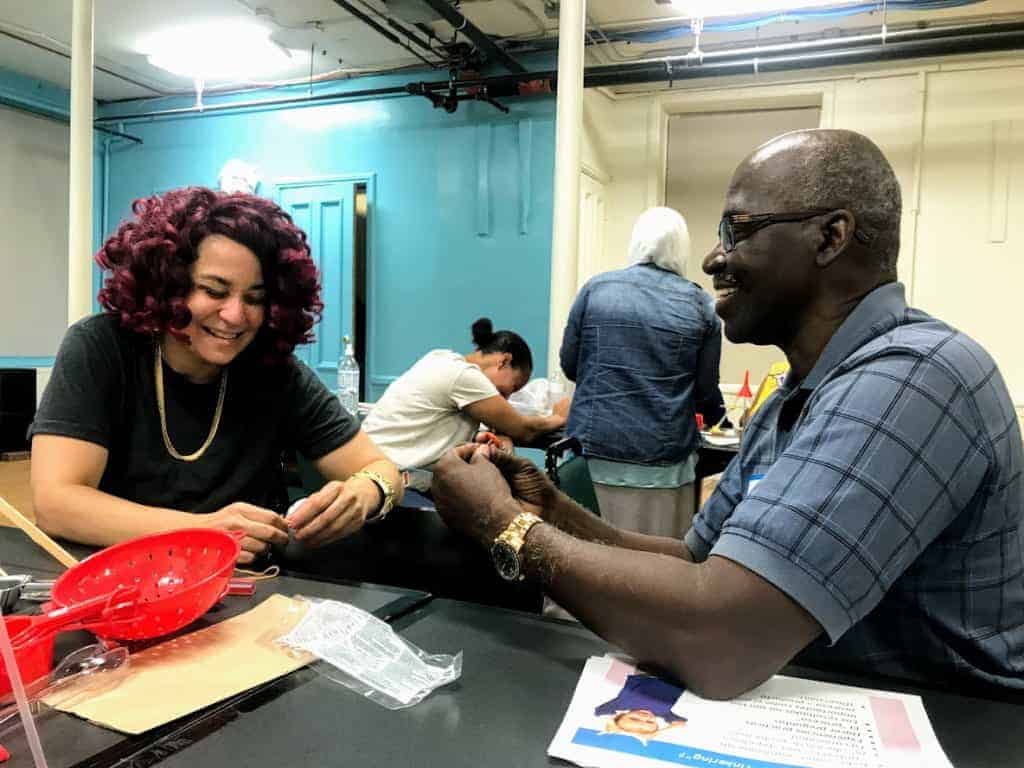

Parents and family members find their way to First Teacher largely through word of mouth. Once they get there, First Teacher staff and volunteers ask two things of new participants: to come with an idea to share and to come willing to learn.
“We always ask no matter who you are, ‘What is the worst thing about parenting?’ It levels the playing ground,” said Toole.
Toole and Shepherd emphasized the importance of making parents and caregivers feel safe, comfortable to share, and not judged.
“There’s no such thing as a perfect parent,” Toole said. “We’re not a place that’s trying to make you a perfect parent. We’re trying to get you to understand that you have a lot, and we want you to be confident.”
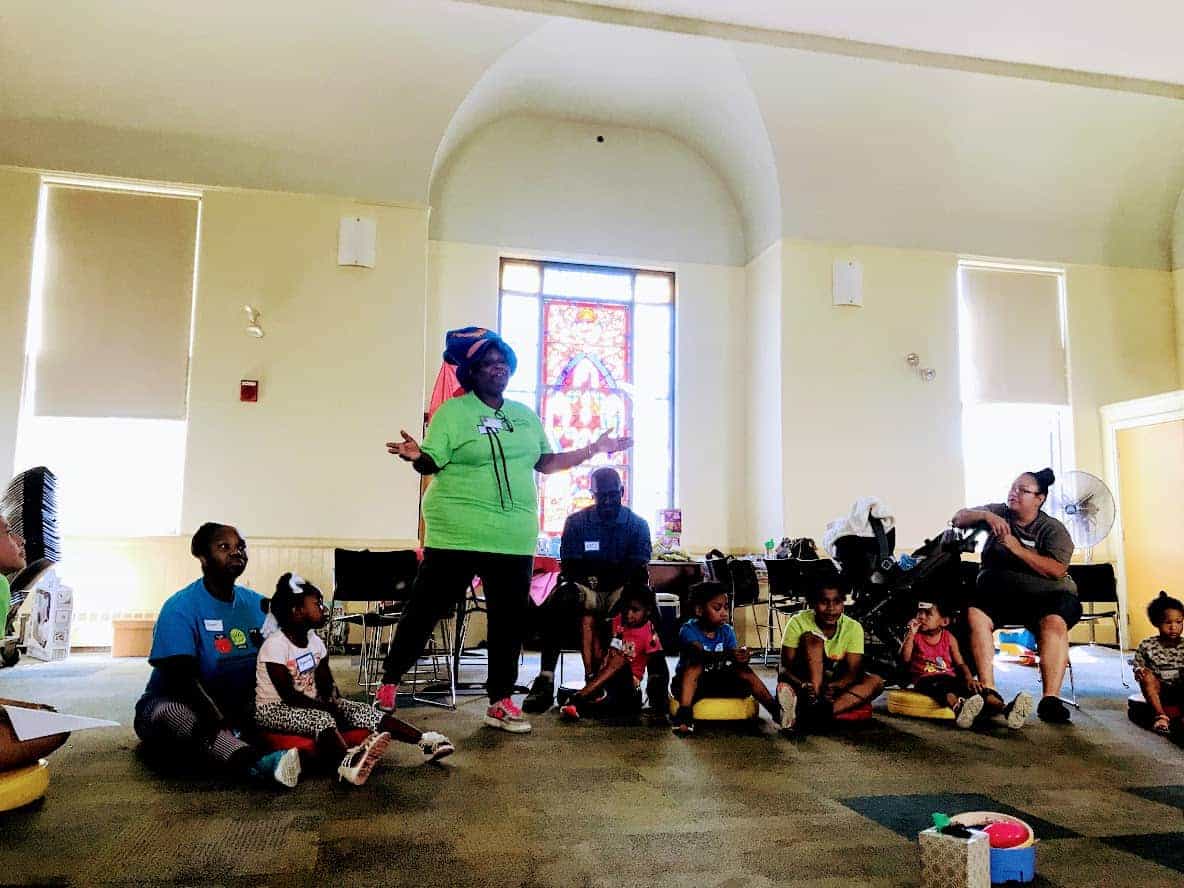

The workshops are completely parent-facilitated. Many of the parent facilitators started as participants with First Teacher and then were hired as parent leaders. One of the parent leaders, Bernise Hall, has been with First Teacher for four years. Describing both parent participants and leaders, she said, “We are a group of parents who are still learning different strategies for parenting and how to prepare kids for school.” Hall’s daughter is now 6 years old, so Hall is now learning how to help her learn to read.
First Teacher partners with many local organizations, including Boston Children’s Museum and Countdown to Kindergarten, a collaboration between the mayor’s office, Boston Public Schools, and several local organizations to ensure students are kindergarten-ready and parents understand the school registration process.
First Teacher started by doing workshops during the school year and expanded last year to include family play weeks during the summer. Toole said parent demand drove their expansion in the summer: “A family came and said, ‘So what are we supposed to do for the summer?’ So that sparked us to think about what could we do in the summer with our families. How do we address summer learning loss?”
Josette Williams, program manager at Countdown to Kindergarten and chairwoman of First Teacher’s advisory council, worked with First Teacher and Boston Children’s Museum to develop family play week during the summer.
“We developed family play week as a way to address the achievement gap and school readiness for kids of color in Dorchester and Roxbury,” Williams said. “We knew that the information was important, but the way we were giving it wasn’t meeting families needs.”
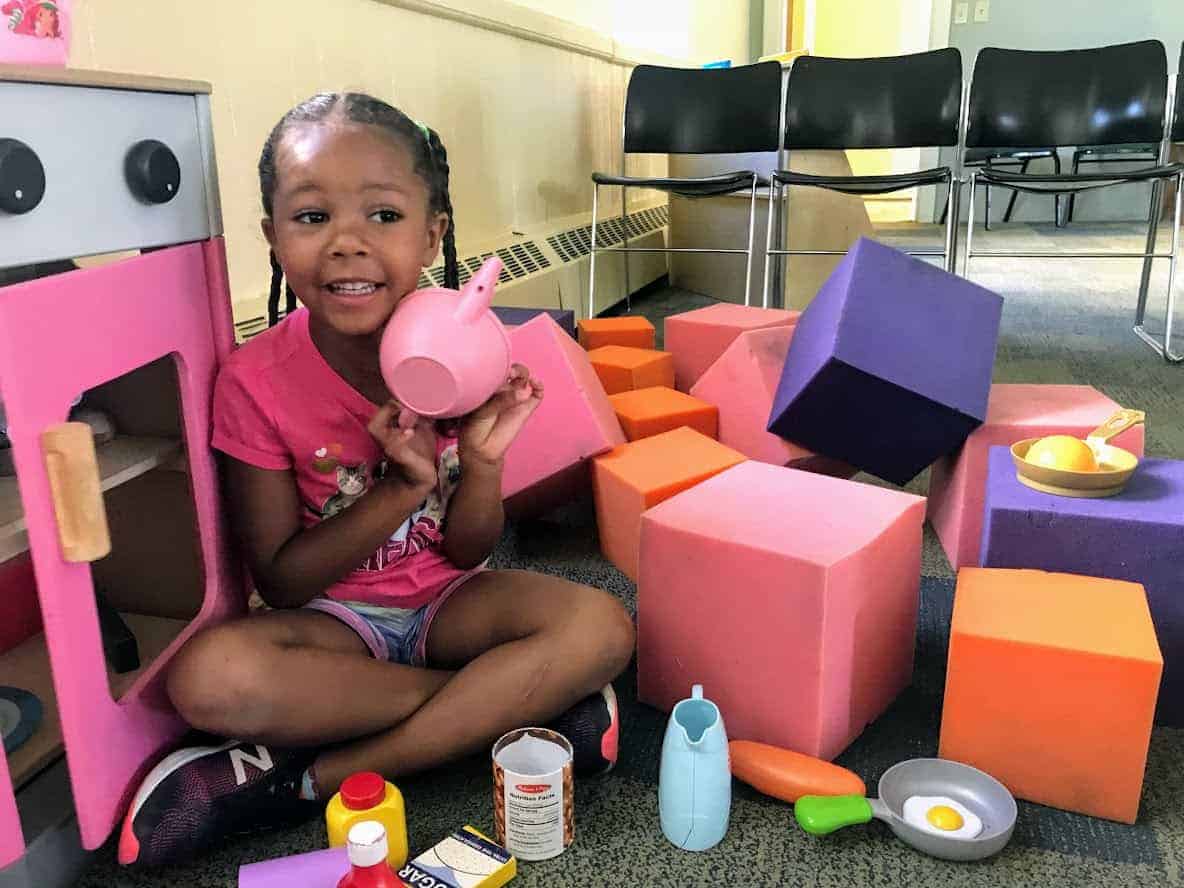

Unlike summer camps, parents don’t drop their kids off at family play week — they attend alongside their children. For each day that week, First Teacher facilitators and volunteers organize a different set of activities and field trips for the parents and children. During the first family play week from July 9 to July 13, participants went to Boston Children’s Museum and the beach, among other places, and attended workshops held at the Universal Unitarian Church in Roxbury.
Throughout free play and structured activities, First Teacher staff and volunteers incorporate strategies to build school-readiness, literacy, and language skills. For example, before every transition, staff, volunteers, and parents sing a warning song so the children understand they are about to transition. They then sing a clean up song, encouraging each child to pick up at least one toy and return it to its place. At lunch, First Teacher staff and volunteers ask each parent and child to throw away at least one item from their tables.
“It’s really important for the children to all throw something away,” Williams said. “This is how we start school readiness.”
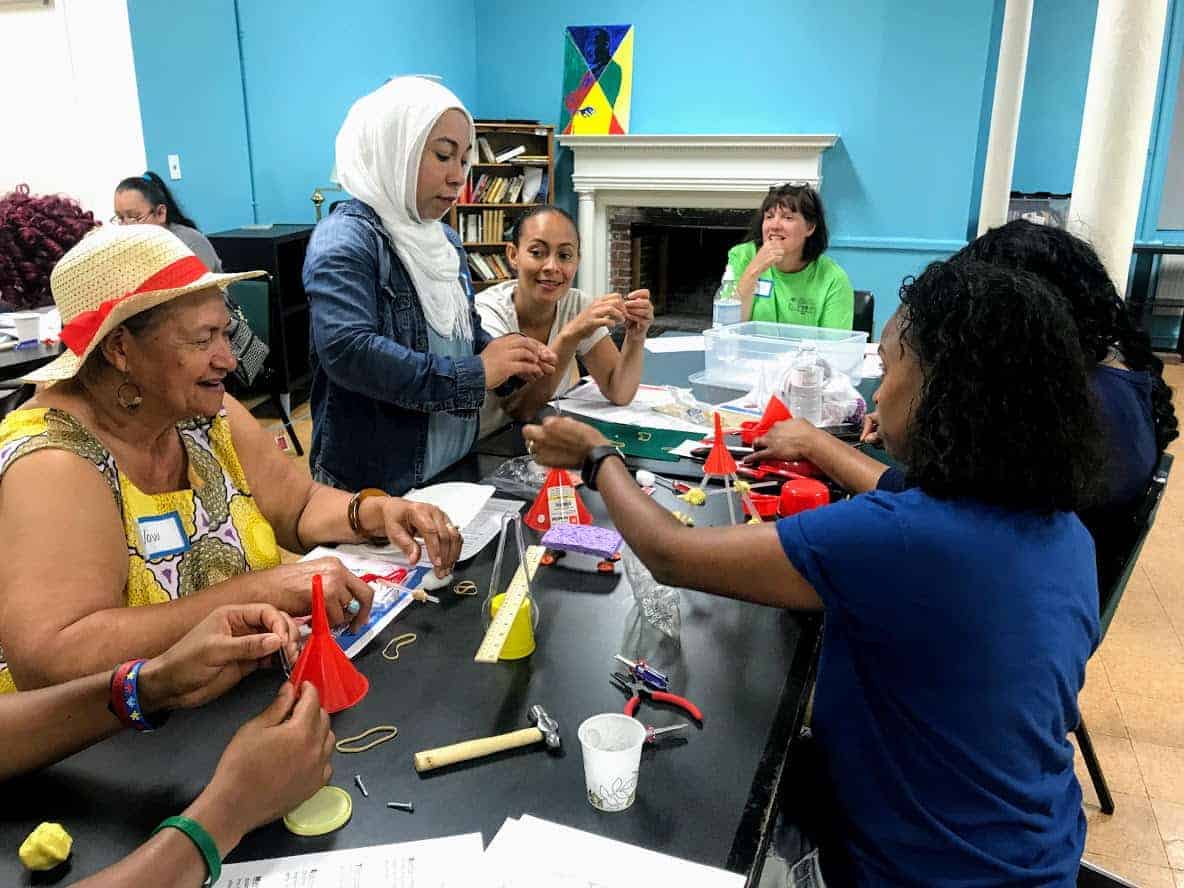

Parents also participated in a “tinker workshop” hosted by the Boston Children’s Museum that allowed parents to see how kids could use regular household items to make creative structures. The facilitator, Kacy, emphasized the importance of allowing kids to engage in unstructured, child-directed play.
“I don’t think we give them enough credit,” she said. “They learn a lot of negotiation skills while playing on their own.”
In addition, Kacy pointed out that students are learning vocabulary, STEM, and literacy skills as they “tinker” with different materials.
For the parents, family play week is an opportunity to bond with their children, meet other parents, and learn new strategies and skills. One parent, Karen, became interested in family play week after seeing the schedule and the field trips. “My daughter is really looking forward to going to Castle Island and Acton Discovery Museum,” she said.
Sandy, a mother of two autistic children, decided to come to family play week because she wanted to give her kids as much play time as possible. She heard about First Teacher through her cousin, who participated in previous First Teacher workshops.
One parent added, “Even though we’re many families, it seems like we come together and we’re one big family…It’s the feeling of being part of something, getting that community feel.”
That feeling of connection and building community is what First Teacher strives to create. “It’s about rebuilding families and communities together,” said Williams.
